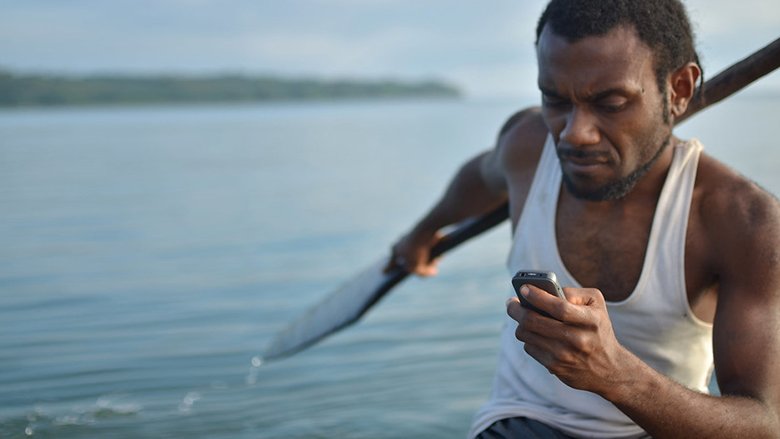It is nearly impossible to participate in the modern economy without mobile devices. Over 6 billion people now have access to smartphones, and the use of sensors to measure things like power quality, cookstove use, and air pollution are becoming more common. The expansion of mobile banking, online social networks, and the sharing economy have made mobile devices essential parts of every day social and economic activity. As a result of their ubiquity, mobile measurement tools and mobile data offer an attractive resource for researchers interested in addressing complex challenges like poverty, climate change, and public health crises around the world.
At Measuring Development 2022: The Role of Mobile Data in Global Development Research, we took a look at how researchers and policymakers are using mobile data to conduct innovative research to solve global challenges. MeasureDev featured a series of presentations, panel discussions, and lightning talks on novel applications of mobile technology and mobile data for research. Participants will learn about the frontiers of measurement using mobile devices, and gain perspectives from leading academic and industry pioneers.
The Role of Mobile Data in Global Development Research
Measuring Development 2022
Wednesday, May 11, 2022Time (EDT/GMT-4) Presentation | |
8:30 – 9:00 am | BREAKFAST |
9:00 – 9:30 am | Introduction Carson Christiano (CEGA) Framing remarks Arianna Legovini (World Bank) |
9:30 – 10:20 am | Session 1: Mobile data for DevelopmentChair: Melis Guven, Global Lead for Social Protection Delivery Systems, World Bank |
| Machine learning and phone data can improve the targeting of humanitarian aid Emily Aiken (UC Berkeley)** | Suzanne Bellue, Dean Karlan, Chris Udry, Josh Blumenstock Port-Au-Prince Calling: Informing Resilience to Social Unrest with Mobile Communication Networks Daniel Putman (UPenn)** | Travis Lybbert Using Mobile Phone Data to Measure Seasonal Labor Flows Xiao Hui Tai (UC Berkeley)** | Suraj R. Nair, Shikhar Mehra |
10:20 – 10:40 am | BREAK |
10:40 – 11:30 am | Session 2A: Mobile data for healthChair: Olusoji Adeyi, President, Resilient Health Systems and Senior Associate, Johns Hopkins Bloomberg School of Public Health |
| Impact of mobile network expansion on infant mortality Kibrom Tafere (World Bank)** | Justice Tei Mensah, Kibrom A. Abay Mobile phone-based diagnostics for Neglected Tropical Diseases María Díaz de León Derby (UC Berkeley)** | Michael V. D’Ambrosio, Maxim Armstrong, Daniel H. Friedman, Neil Switz, Isaac I. Bogoch, Daniel A. Fletcher Mobile data collection to map risk factors for antibiotic-resistant E. coli in Ecuador Heather Amato (UC Berkeley)** | Carlos Saraiva-García, Fernanda Loayza, Amy J. Pickering, Lee W. Riley, Gabriel Trueba, Jay P. Graham |
11:30 – 12:20 pm | Session 2B: Mobile data and Covid-19Chair: Norbert Schady, Chief Economist for Human Development, World Bank Group |
| The Viral Spread of COVID-19 Information: A social media experiment in Pakistan Arman Rezaee (UC Davis)** | Sarojini Hirshleifer, Mustafa Naseem, Agha Ali Raza Uncovering socioeconomic gaps in mobility reduction during the COVID-19 pandemic using location data Lorenzo Lucchini (Bocconi)** (virtual) | Sam Fraiberger, Pablo Astudillo, Lorenzo Candeago, Alex Chunet, Nicholas Jones, Maham Faisal Khan, Bruno Lepri, Nancy Lozano Gracia, Emanuele Massaro, Aleister Montfort Using Social Media Campaigns to Promote Health-Seeking Behaviors of Households Victor Orozco (World Bank) (virtual)** | Nandan Rao, Dante Donati, Ana Maria Munoz Boudet |
12:20 – 1:00 pm | LUNCH (catered) |
1:00 – 1:30pm | Overview: Mobile Data in Global Development Research Sveta Milusheva (World Bank) |
1:30 – 2:30 pm | Session 3: Mobile data for transportChair: Nicolas Peltier, incoming Global Director for Transport, World Bank |
| Measuring the Incidence and Reporting of Violence Against Women in Public Spaces in Dar es Salaam Girija Borker (World Bank)** | Naira Kalra, Samuel Likindikoki, Ester Steven COVID-19 Policies and Road Safety: The Case of Nairobi Rob Marty (World Bank)** | Sveta Milusheva, Arianna Legovini, Peter Taniform, Caitlin Dolkart, Kelvin Gakuo, Amy Dolinger, Guadalupe Bedoya Private and public transport in Lagos: how mobile phones can help researchers understand mobility Alice Duhaut (World Bank)**, Nick Tsivanidis, Dan Björkegren Demand for ‘safe spaces’: Avoiding harassment and stigma Florence Kondylis (World Bank)**, Arianna Legovini, Luiza Cardoso de Andrade, Astrid Zwager, Kate Vyborny |
2:30 – 2:50 pm | COFFEE BREAK |
2:50 – 3:50 pm | Session 4: Methods for mobile dataChair: Aart Kraay, Director of Development Policy and Deputy Chief Economist, World Bank |
| Framework to Study Migration Decisions Using Call Detail Record (CDR) Data Vanessa Frias-Martinez (Maryland)** | Viren Dias, Lasantha Fernando, Yusen Lin, Louiqa Raschid Digital Breadcrumbs: Testing the Limits of Cell Phone Metadata in Poverty and Impact Assessment Oscar Barriga Cabanillas (World Bank)** | Josh Blumenstock, Travis J. Lybbert, Daniel Putman Assessing Bias in Smartphone Mobility Estimates in Low Income Countries Dan Björkegren (Brown)** | Sveta Milusheva, Leonardo Viotti Evaluating the efficacy of SMS surveys for measuring household welfare and firm performance Megan Lang (UCSB)** | Ethan Ligon |
4:00 – 5:00 pm | Lightning Talks |
| Advantages & disadvantages of IVR data collection Marisa Nowicki (ideas42)** | Lois Ayree, Catherine MacLeod, Saugato Datta Where do people spend their time and money? An empirical mobility big data case study for Nairobi Vivek Sakhrani (Atlas AI) Eyes on the Ground: Crop monitoring through smartphone pictures of plots Berber Kramer (IFPRI)** | Koen Hufkens, Berber Kramer, Benson Njuguna, Lilian Waithaka, and collaborators from Dvara E-Registry Using mobile phone transaction data to study digital financial inclusion Suraj Nair (UC Berkeley)** | Joshua E. Blumenstock From In-Person to Mobile Data Collection in Kenya Winnie Mughogho (Busara) Mobile operator data partnerships: lessons from COVID-19 response and urban planning use cases Zach White (GSMA) |

